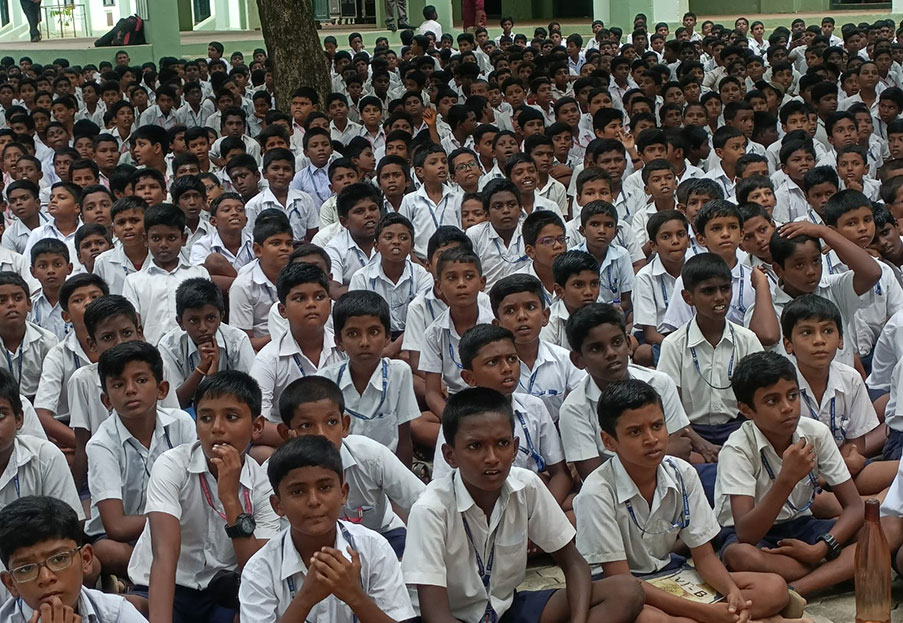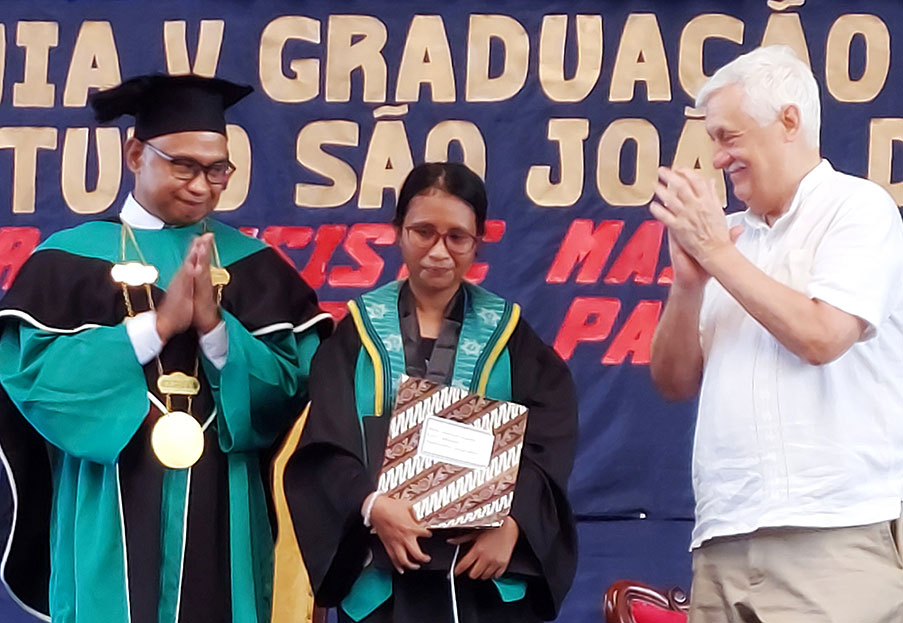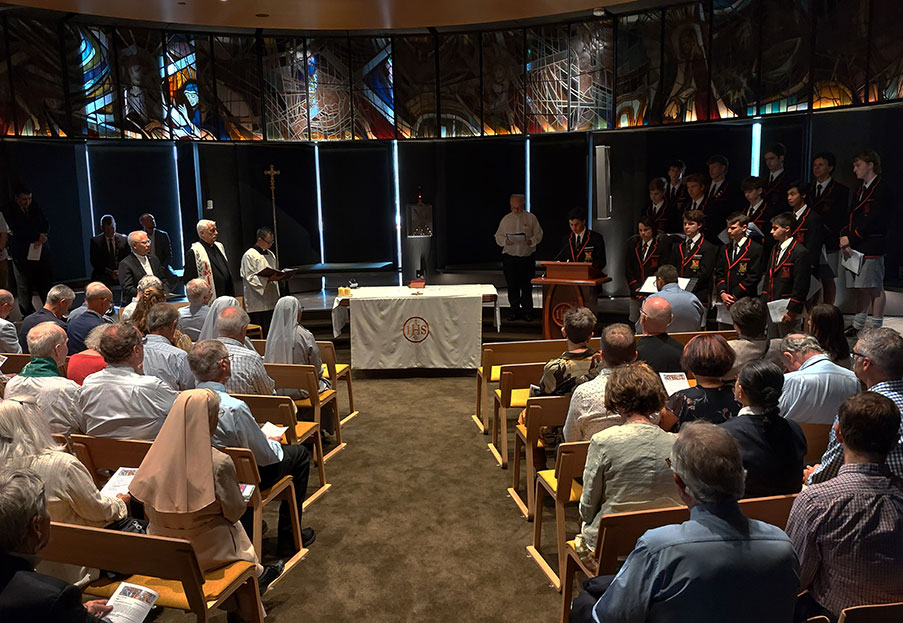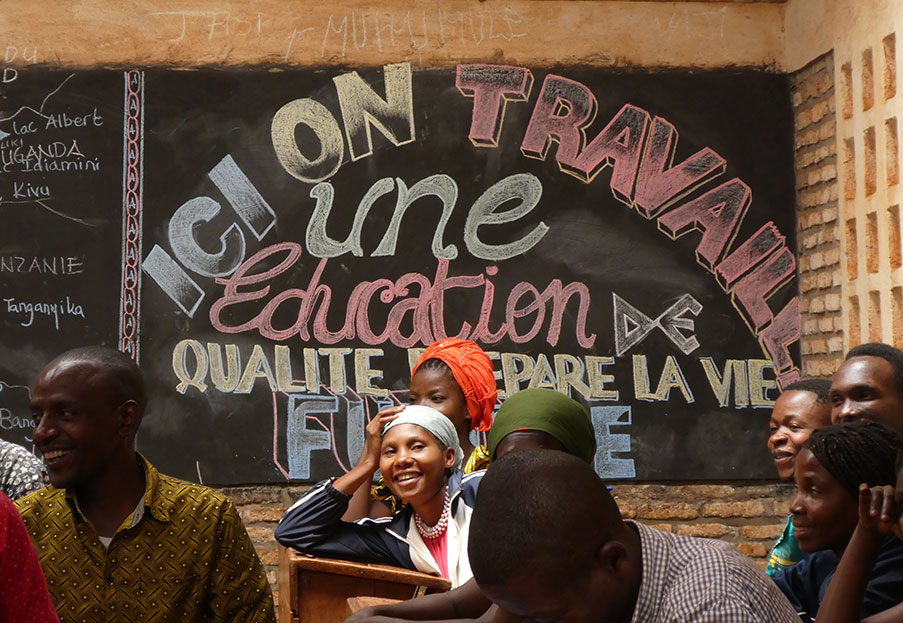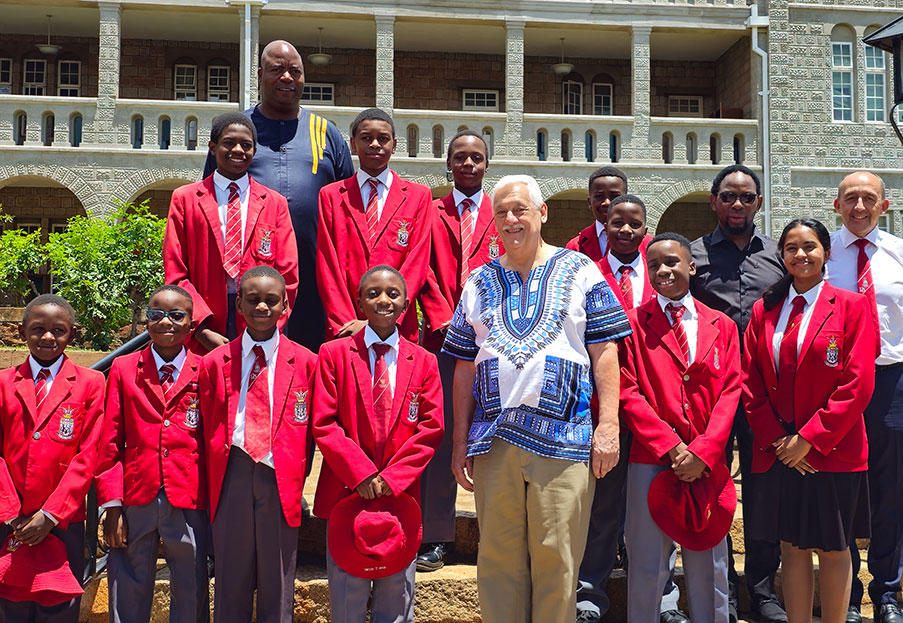Revitalise education for the COVID-19 generation
In the era of the coronavirus pandemic, the world of education faces major challenges. Even before COVID, in many parts of the world, access to education was not guaranteed for all children, especially girls. COVID-19 has closed many schools and isolated young people from each other. While in many places distance access programmes have been developed, it is clear that the experience of online learning does not replace the closeness of a teacher to his or her group of students. This is especially the case for young people with learning difficulties, for whom current conditions may accentuate their lagging behind. Or even cause them to drop out of school.
The Jesuit magazine AMERICA (USA), has drawn attention to these shortcomings of distance education, stressing how social interrelationships are an important part of the educational experience, especially during the early stages of schooling. The same publication, in another article, looked at an important dimension of what is offered in Jesuit institutions, this time in colleges and universities. Campus ministry has had to renew and reinvent itself. The activities of campus ministry have always been based on proximity, interpersonal relations, individual or group support. Open virtual chat rooms, online counselling, celebrations on Zoom and proposals of meditation tools and even Ignatian yoga podcasts have been developed everywhere.
In almost every country in the world where the
Society of Jesus is present, it is often known primarily for its educational
institutions. Yes, we can think of famous universities, but also of a large number
of secondary schools that proudly bear the names of Ignatius, Xavier,
Bellarmine, Gonzaga. Above all, we must not forget important networks of
schools that serve first and foremost young people from underprivileged
backgrounds, young people who, without the contribution of the Jesuits'
experience in education, could quickly find themselves among the excluded of
the world in the making. We think here of the Fe y Alegría (Faith and Joy) network launched in Latin America but
which continues to spread to other parts of the world, including Africa. There
are also the Nativity Schools and Christo Rey networks which, in the United
States, primarily serve immigrant populations.
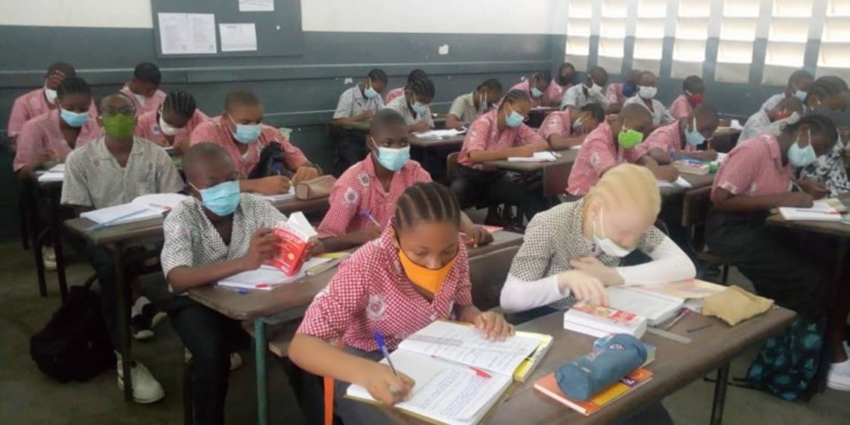
Innovation in distance education has left its mark on the world of Jesuit education: in many countries, programmes have been reorganised to offer the vast majority of courses online. But the JWL (Jesuit Worldwide Learning) project, which was launched a few years ago, is particularly well suited to this. Its aim is to serve directly young people from disadvantaged backgrounds. It offers a distance learning programme supported by personalised attention to students and a commitment to improving their living conditions. This project reaches out to young people in refugee camps, which is urgently needed. It has been found that, as the length of time families stay in camps has become much longer, lives are wasted when a child, teenager or young adult is deprived of access to education for years. JWL therefore provides access to high quality education in many camps but also in slums, isolated areas or crisis settings. Its approach promotes the creation of relationships by focusing on the development of multi-ethnic and inter-religious groups.
In short, Jesuit education networks can fully participate
in UNESCO's objectives for the 3rd International Day of Education on 25 January.
This worldwide initiative wants to encourage all actors in the world of
education to relaunch and revitalize education for the COVID-19 generation.
UNESCO says that the difficult and exceptional circumstances of the pandemic
must be used to advance education by intensifying international collaboration
and solidarity to place education and lifelong learning at the centre of the
recovery process. It is a path that is placing people at the centre of the
post-COVID world.
